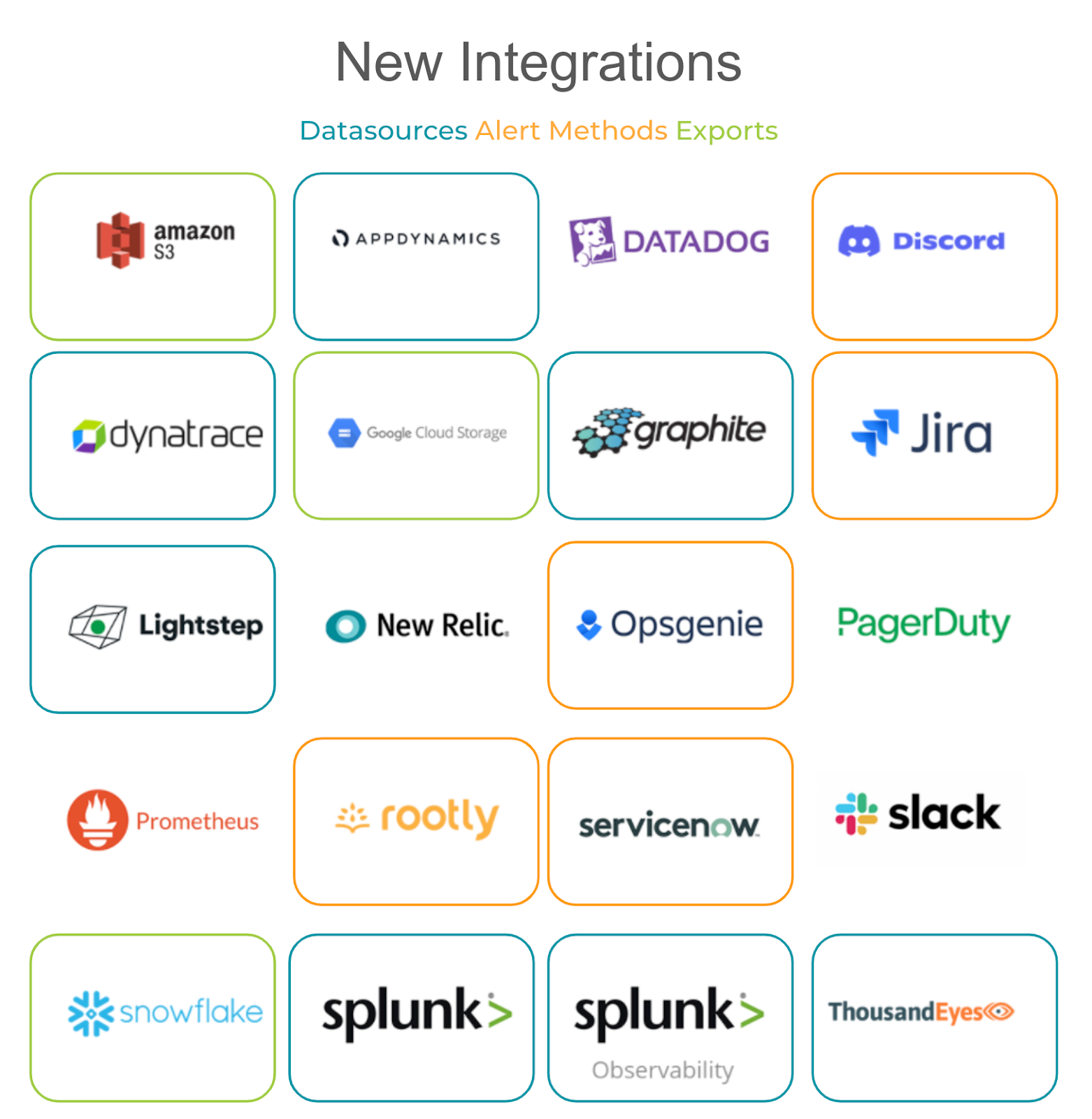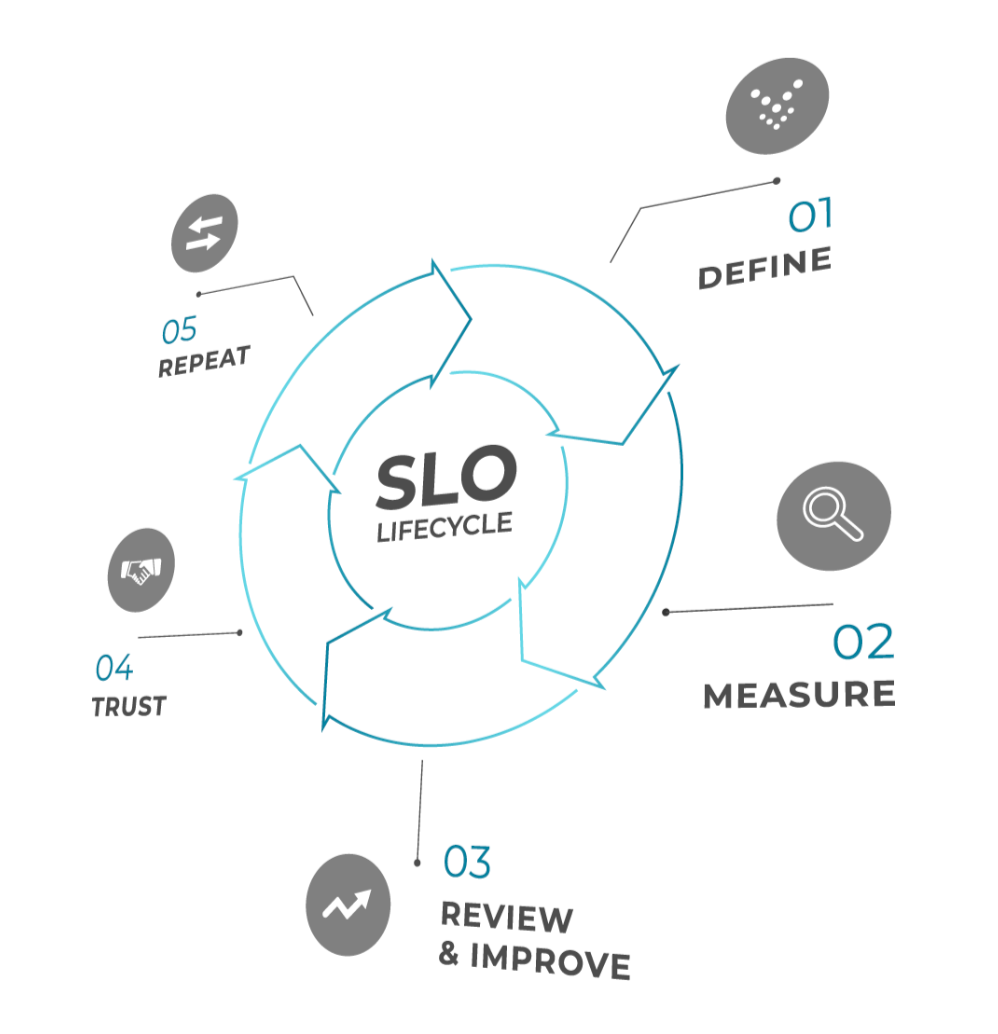More by Quan To:
Splunk Search Processing Language (SPL) and Nobl9 Nobl9 Adds Support for Custom Labels Nobl9 2021 year in review Product Update: Keeping our foot on the gas pedal How to Measure Uptime SLOs Using Nobl9 and Pingdom Nobl9 Adds Role-Based Access Controls SLO Dashboard for Service Health Nobl9 2022 Product Update| Author: Quan To
Avg. reading time: 3 minutes
We shipped many new features and third-party product integrations this quarter. And we’re just getting started! Read on to learn what we’ve delivered and why I am personally so excited about Nobl9.
I joined Nobl9 four months ago after spending my entire career at large corporations. Friends & mentors warned me that start-ups move fast, pivot quickly, and launch new features like there’s no tomorrow.
Our goal is that you can see all your SLOs from any monitoring system and alert you via any notification destination. We’re well on our way there.
On my first day at Nobl9, I was invited to a meeting to discuss an export feature. Customers were asking to export their SLO data to Snowflake. I knew about Snowflake but never used it and started reading their public documentation while ramping up on Nobl9 and SLOs. I’ve worked on similar features to export data in the past, so I dove in and wrote a PRD outlining the customer problem, impact, requirements, and user journeys. The team spent a few days commenting on the PRD, and I leveraged their feedback to understand the inner workings of Nobl9 better. Within a week, the team was investigating and costing the engineering work, and a month later, we delivered an initial MVP of the feature to our customer. Shortly after, we shipped the ability to export data to AWS S3 and GCS.
At companies I’ve previously worked for, this would have taken a month just to get the teams aligned and probably two quarters (or more) to build the feature. I was amazed at how quickly things can come together when the team and company are laser-focused. Having direct feedback from our customers helped us know we’re building the highest impact feature.
Reflecting on Q2, we kept a fast, steady pace the entire time. When I joined in February, Nobl9 launched to General Availability. We supported Prometheus, Datadog, and New Relic as our data sources and PagerDuty and Slack as the alert notification integrations.
In a single quarter, we expanded the data source integrations from 3 to 10. We added support for AppDynamics, Dynatrace, Graphite, Lightstep, Splunk Core, Splunk Observability, and ThousandEyes. For Alert Integrations, we tripled our integration points and added OpsGenie, Jira, Discord, and ServiceNow. We also built support for Webhooks, allowing our customers to add an alert integration to any Alerting Tools that support REST APIs such as Rootly, XMatters, or even MS Teams.
Including the Data Export feature, Nobl9 quadrupled its integrations from 5 to 20 in one quarter. I knew start-ups move fast, but I didn’t expect things to move THIS fast! Building these integrations requires great coordination. We need to understand the partner tools, create test environments, push test data to the data sources, and write the actual code to pull data from each data source or send data to the alert methods. Fortunately, after doing a few integrations, we’ve created some repeatable processes and templates, and we’re leveraging our experience to launch new integrations in a short amount of time. We have an ever-growing list of other integrations and will continue releasing new ones. Our goal is that you can see all your SLOs from any monitoring system and alert you via any notification destination. We’re well on our way there.

Launching 15 integration points in one quarter is pretty darn impressive on its own. We also found time to add features to the platform including new report filters, expanded data source connections, and SaaS to SaaS connections. Customers who are on-prem or behind a firewall may opt for an agent model to connect to SLI sources while using direct connection for externally hosted SLIs. We’ve also added “quality of life” improvements by adding links in SLOs to the underlying SLIs or runbooks to aid in debugging. New deep links throughout Nobl9 also let you easily share what you’re seeing with your coworkers.
We’ve continued to invest in product quality. For example, we improved our burn rate calculation based on customer feedback. We made charts clearer and more readable. And our “Spring Cleaning” fixed about 100 bugs to improve fit and finish.
I’m in awe of how quickly things are coming together. We consistently hear great feedback from customers who love our fast turnarounds, and I’m so impressed with how the product has evolved in such a short time.
I also want to mention that the rest of the Nobl9 folks (non Engineering) were busy in Q2. We hosted the first SLO conference, established an Open SLO standard, and most importantly, launched Wienershirtzel, a site dedicated to pet clothing (and a place to test our SLOs).
It’s been a fun and fantastic ride so far. I’m super excited and looking forward to continuing our momentum in Q3!
Image Credit SpaceX on Unsplash

-1.png)


Do you want to add something? Leave a comment